Your filtered results are below:
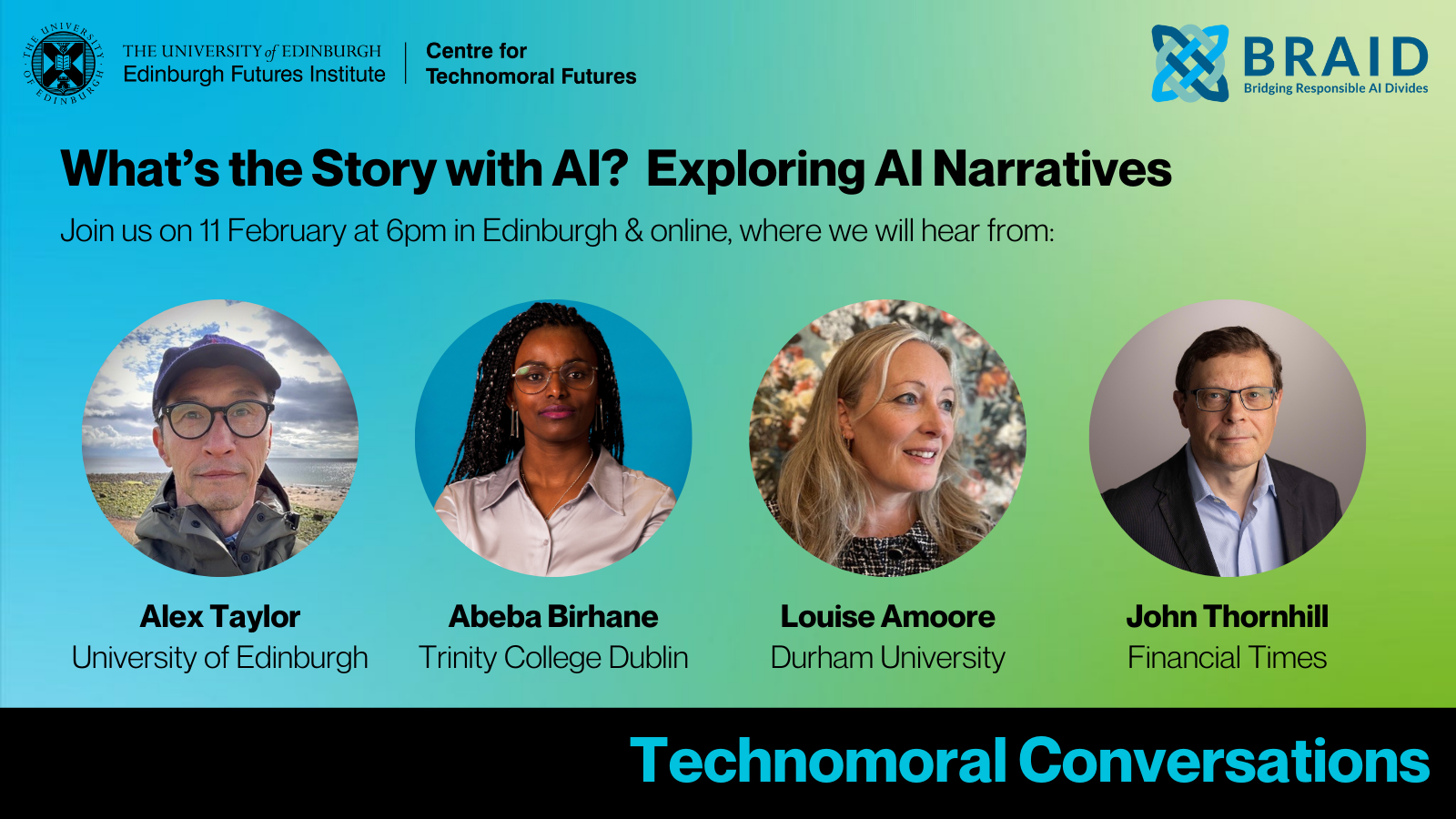
Technomoral Conversations: What’s the Story with AI? AI Narratives and Counter-Narratives
During this fireside chat, we will hear insights from experts across academia and industry on the dominant narratives surrounding AI, and what alternative stories can and are being told about AI and its place in our futures.
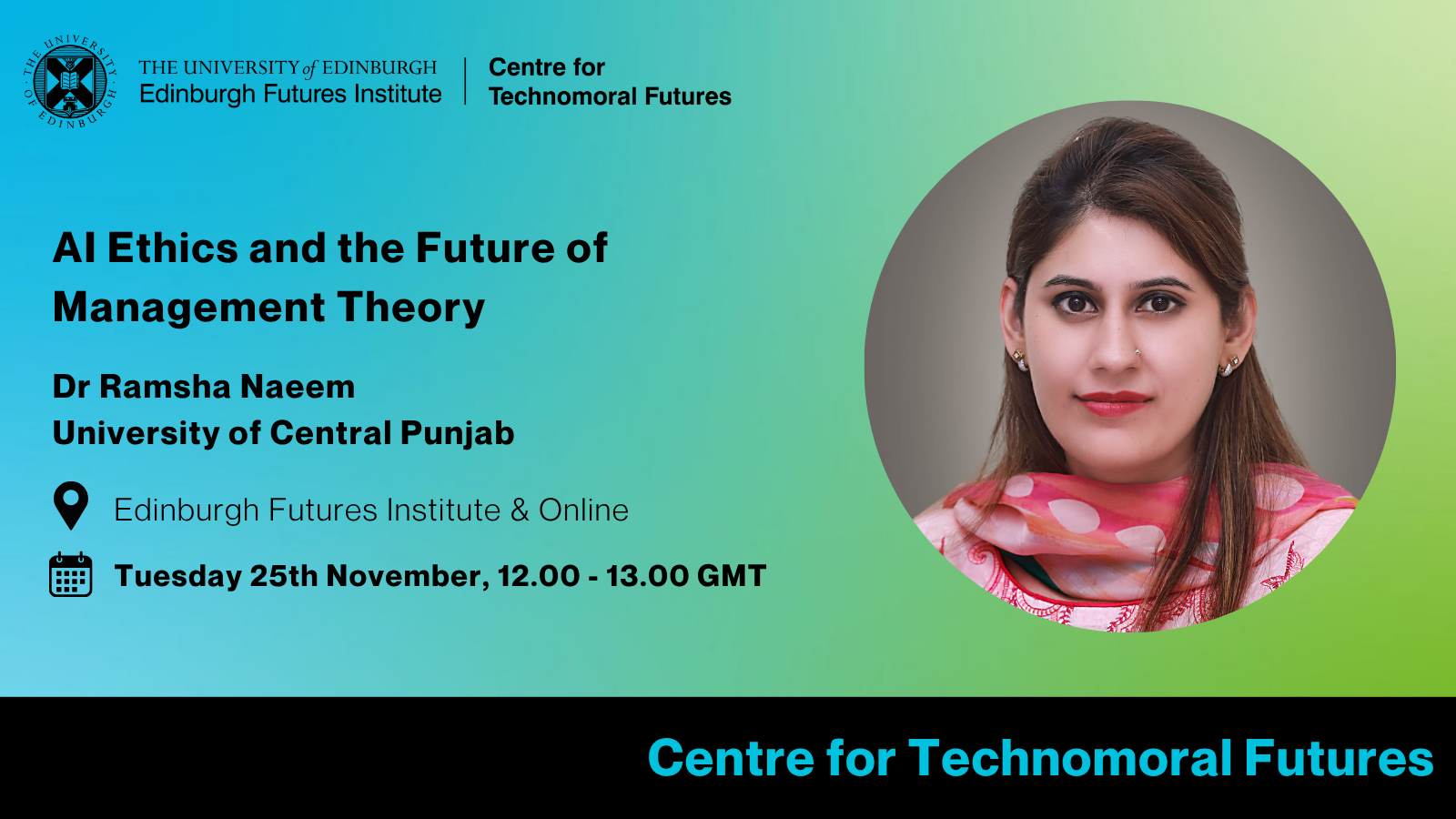
AI Ethics and the Future of Management Theory
Join us as we hear from EFI Visiting Fellow Dr Ramsha Naeem (University of Central Punjab) on the need for interdisciplinary dialogue between AI ethics and management theory.

Technomoral Conversations: How Will AI Change Science?
During this Technomoral Conversation, we will hear from Dr Emily Sullivan, Dr Eran Tal, Dr Arfon Smith, and Professor Anna Scaife on the impact of data driven machine learning and AI on science and knowledge production.
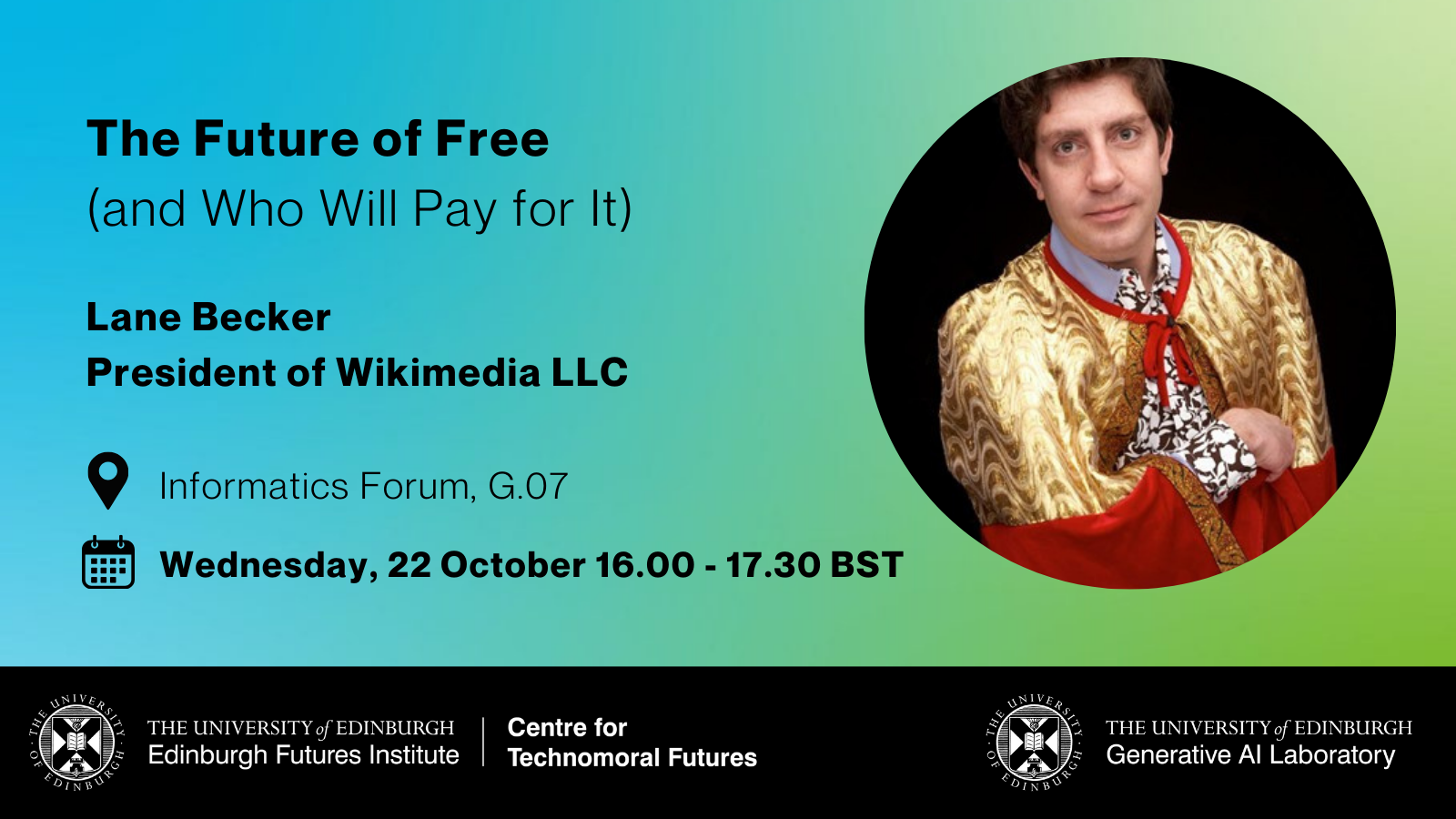
The Future of Free (and Who Will Pay for It)
Join us as we hear from Lane Becker (President of Wikimedia LLC) on who bears the cost of free in our AI-accelerated world.
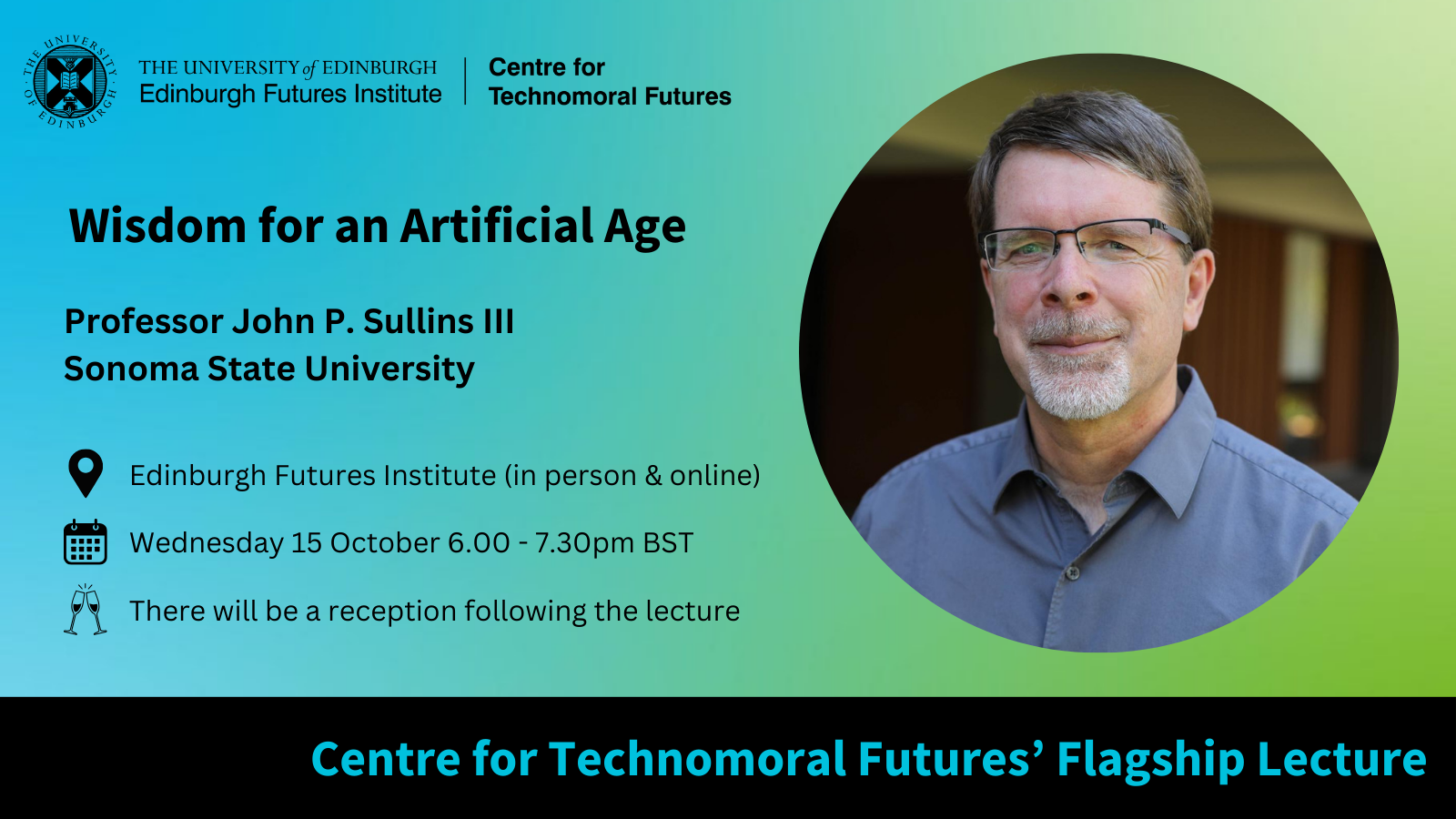
Wisdom for an Artificial Age
During our CTMF Flagship Lecture, we will hear from Professor John P. Sullins (Sonoma State University) on the surprising role human wisdom is playing in navigating the challenges of AI technologies.

Beyond the ‘absolutism of data’: Rethinking digital life-worlds
Join us as we hear from EFI Visiting Fellow Dr Audrey Borowski (Universities of Bonn and Cambridge) on Beyond the ‘absolutism of data': rethinking digital life-worlds.

Technomoral Conversations: AI & Creative Labour
This Technomoral Conversation will look at issues ranging from the AI industry’s copyright violations, to the responses from creatives in the UK and elsewhere, to the wider ethical and political questions about the role of AI in creative practice and culture.
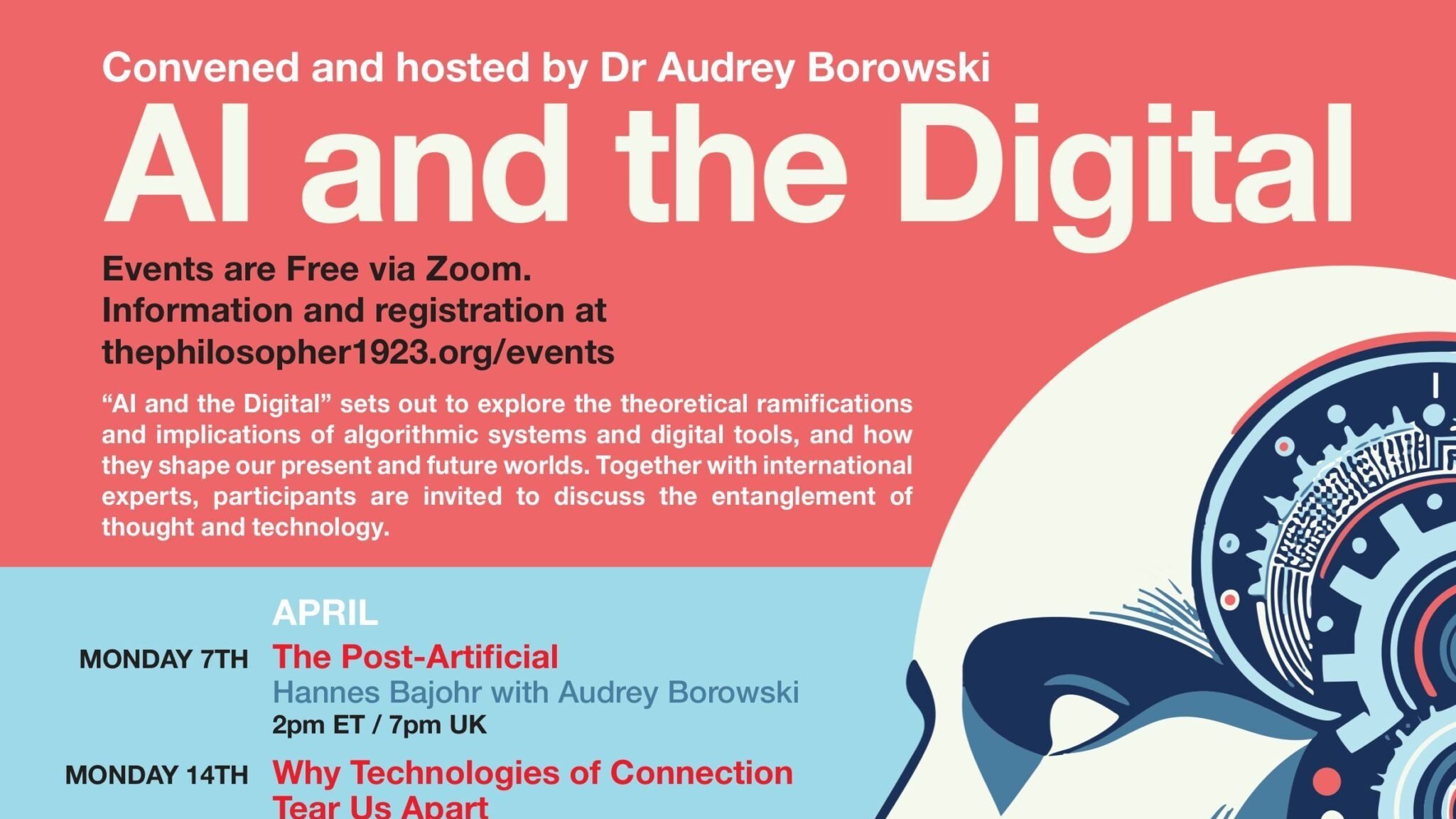
AI and the Digital Seminar Series
Convened and hosted by Dr Audrey Borowski (EFI Visiting Fellow), the "Al and the Digital" seminar series sets out to explore the theoretical ramifications and implications of algorithmic systems and digital tools, and how they shape our present and future worlds.

Good doesn’t come cheap or fast: Understanding data ethics as situated practice
Join us as we hear from EFI Visiting Fellow Dr Anissa Tanweer (University of Washington) on understanding data ethics as situated practice.

Technomoral Conversations: What the Majority World Can Teach Us about AI
In this Technomoral Conversations panel, we will hear from leading voices from the Majority World on what they have learned from and about AI, and the issues and visions they would like to see taken up.

In a Mirror, Dimly: Why AI Can’t Tell Our Stories, and Why We Must
The values that govern our lives are increasingly explicit: defined by algorithms and institutions to be as clear, precise and quantifiable as possible. In this talk, Professor Nguyen explores two dangers of adopting these values as our own: value capture and value collapse.

Value Capture and Algorithmic Policies: Outsourcing our Values to Technology
The values that govern our lives are increasingly explicit: defined by algorithms and institutions to be as clear, precise and quantifiable as possible. In this talk, Professor Nguyen explores two dangers of adopting these values as our own: value capture and value collapse.

The Score: workshop with Professor C. Thi Nguyen
Join us in person on Friday the 18th of October for a workshop with Professor C. Thi Nguyen, where we will look at an excerpt from his upcoming book, The Score!

Workshop on AI Vulnerabilities and their Societal Implications
This workshop will feature accessible contributions from experts in algorithms that reveal or fix AI vulnerabilities, and researchers from philosophy, law and the social sciences with interests in the wider implications of adversarial attack algorithms.

Petra Molnar: AI Ethnography Masterclass
Led by Petra Molnar and chaired by Morgan Currie, this Masterclass will set out Petra's approach to doing ethnography in this important domain of AI studies, and invite questions and discussion from attendees.

Robodebt Cultures and Useful Idiots: Why Robodebt was not a techno-failure
Hear from Professor Paul Henman on robodebt and his framework to support critical insight into and use of digital technology in government.

The Walls Have Eyes: Surviving Migration in the Age of Artificial Intelligence
Hear Petra Molnar (Harvard University) discuss her new book, which lays out a global story of the sharpening of borders through technological experiments and introduces strategies of togetherness across physical and ideological borders.

POSTPONED - Petra Molnar: AI Ethnography Masterclass
This event has been postponed. Our apologies for any inconvenience.

AI as the Broken Machine
Join AI Ethics and Society for this one-day symposium on 'Artificial Intelligence as the Broken Machine' with invited keynote speaker Professor Louise Amoore.

Understanding Learning in the World of AI
In this talk, Professor David Williamson Shaffer looks at what AI is (and isn’t), its impact on what and how we learn, and how AI can change what it means to do research.

Book Launch: 'Environmental Ethics & Medical Reproduction' by Dr Cristina Richie
We invite you to join us in celebrating the publication of Environmental Ethics and Medical Reproduction by Dr Cristina Richie.
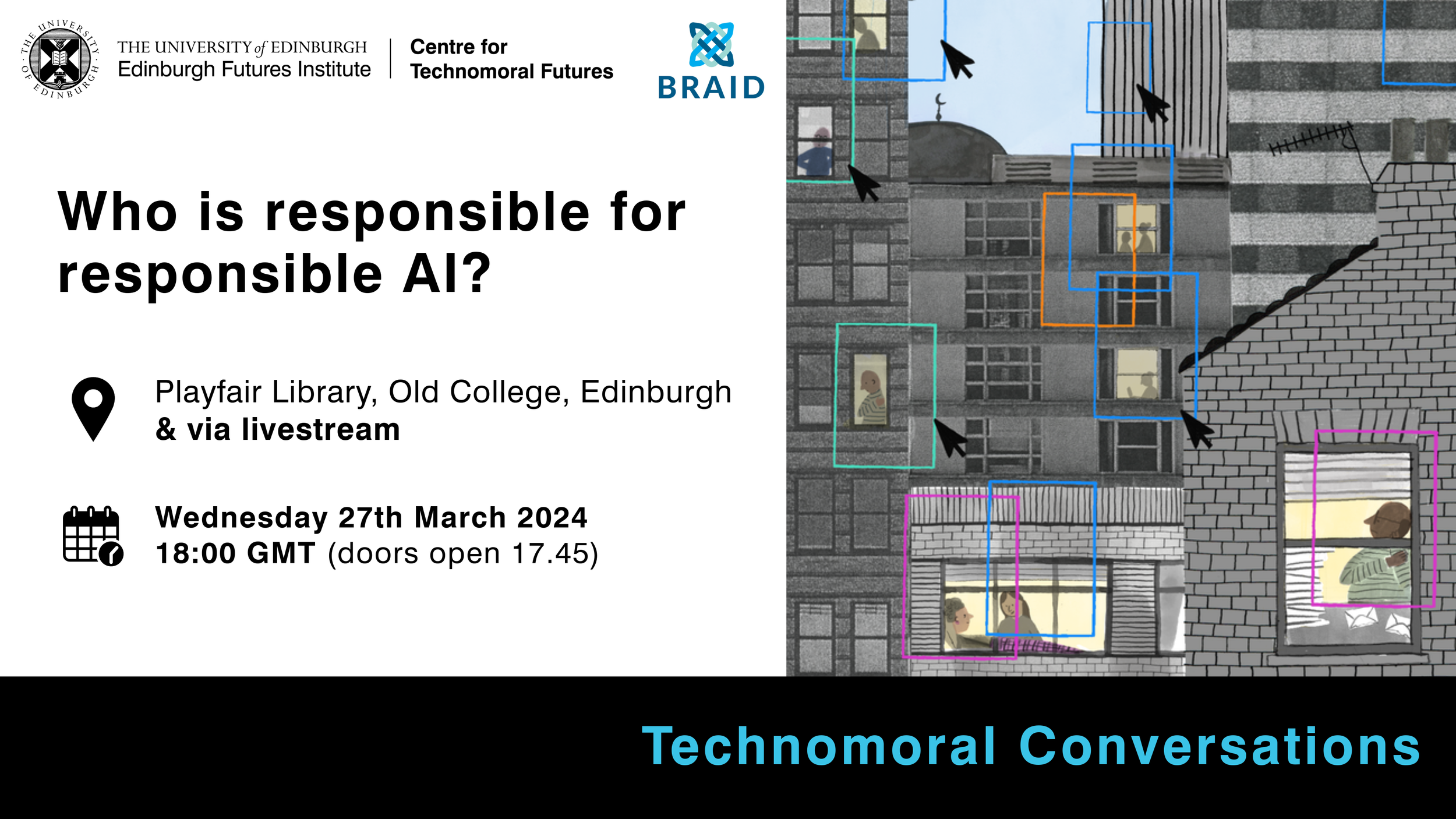
Technomoral Conversations: Who is Responsible for Responsible AI?
Join us for a ‘fireside chat’ where we bring together experts in AI to address questions surrounding the framing of responsibility for AI & autonomous systems.

Governing the AI Business Model: Flagship Lecture with Dr Michael Veale
Join us for our Flagship Lecture, where you'll hear from Dr Michael Veale on how to understand and address challenges of power and justice that stem from digital technologies.

Technomoral Conversations: The Geopolitics of AI
As AI's influence grows, navigating its geopolitics becomes increasingly crucial for shaping the future of nations and their global relationships.


Technomoral Conversations: Technologically Mediated Intimacy
This conversation will explore how we can navigate the complexities of technologies that are entangled with our relationships and our emotions.

Pegasus: A Spy in Your Pocket - Event Cancelled
Event Cancelled Join us for a conversation with the authors of Pegasus: How a Spy in Our Pocket Threatens the End of Privacy, Dignity, and Democracy.

ChatGPT: 'Next Big Thing' or passing trend?
Join Dr Gina Helfrich, from the Centre for Technomoral Futures, Alex Velinov, CTO at Tag Digital, and The Data Lab's Dr Alfred Tiley as we discuss - 'ChatGPT: Next Big Thing Or Passing Trend?'
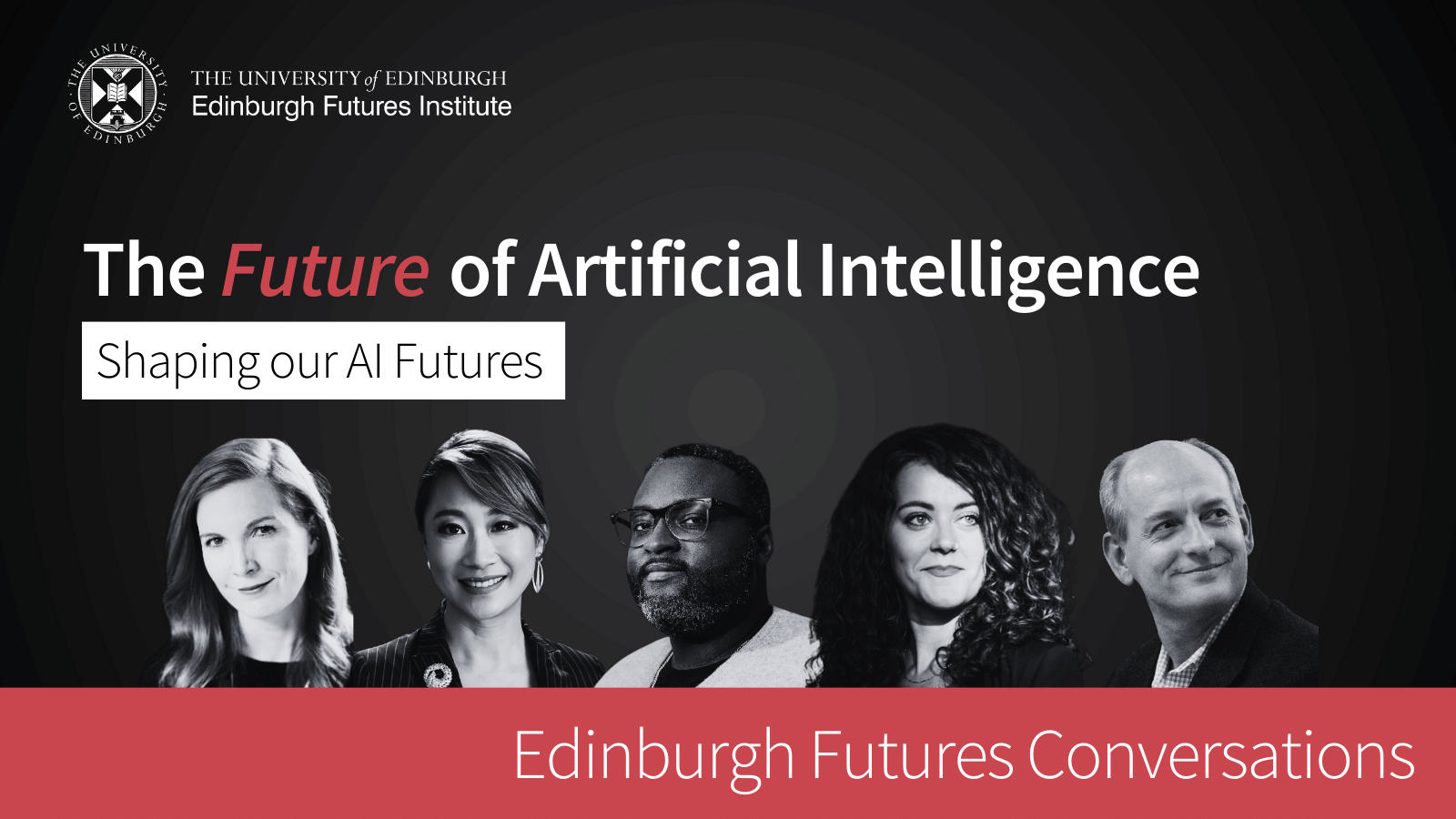
Edinburgh Futures Conversations - The Future of Artificial Intelligence: Shaping our AI Futures
In this Futures Conversations event, we bring together leading experts from the worlds of science, politics, and civil society to debate what our AI futures may bring, and to develop ideas for what is needed to advance our collective ability to put AI to the best possible use.

Deep built environment design for decoupling energy and health burdens from poverty - Dr Ronita Bardhan
This talk discusses how “deep” knowledge can systematically be to generate new information and inform policy space for sustainable and healthy future.

Technomoral Conversations: Sustainability and Artificial Intelligence
Join us for a conversation on sustainability and AI, featuring a panel of experts who are tackling different facets of this challenge.
